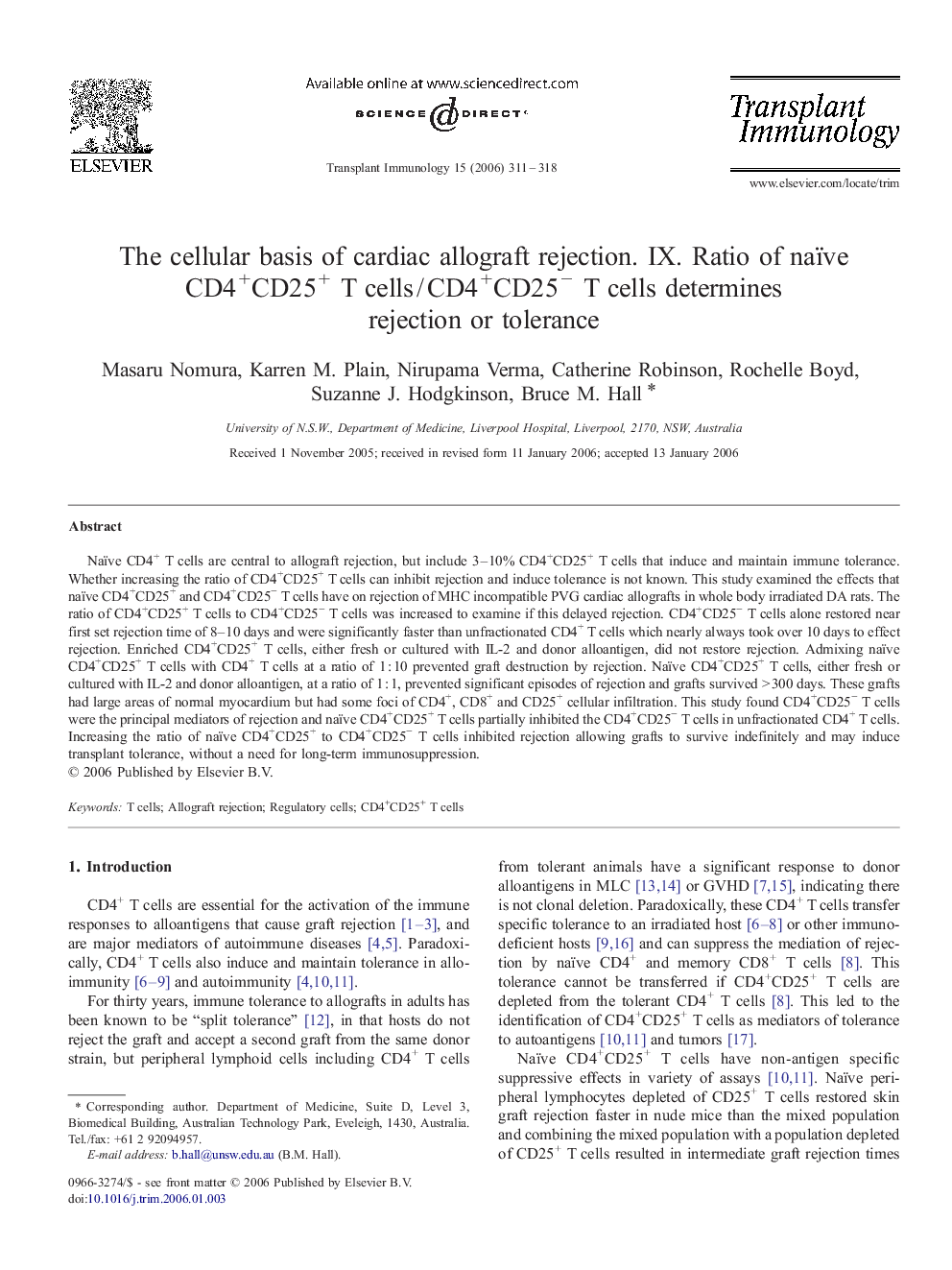| Article ID | Journal | Published Year | Pages | File Type |
|---|---|---|---|---|
| 3392720 | Transplant Immunology | 2006 | 8 Pages |
Naïve CD4+ T cells are central to allograft rejection, but include 3–10% CD4+CD25+ T cells that induce and maintain immune tolerance. Whether increasing the ratio of CD4+CD25+ T cells can inhibit rejection and induce tolerance is not known. This study examined the effects that naïve CD4+CD25+ and CD4+CD25− T cells have on rejection of MHC incompatible PVG cardiac allografts in whole body irradiated DA rats. The ratio of CD4+CD25+ T cells to CD4+CD25− T cells was increased to examine if this delayed rejection. CD4+CD25− T cells alone restored near first set rejection time of 8–10 days and were significantly faster than unfractionated CD4+ T cells which nearly always took over 10 days to effect rejection. Enriched CD4+CD25+ T cells, either fresh or cultured with IL-2 and donor alloantigen, did not restore rejection. Admixing naïve CD4+CD25+ T cells with CD4+ T cells at a ratio of 1 : 10 prevented graft destruction by rejection. Naïve CD4+CD25+ T cells, either fresh or cultured with IL-2 and donor alloantigen, at a ratio of 1 : 1, prevented significant episodes of rejection and grafts survived > 300 days. These grafts had large areas of normal myocardium but had some foci of CD4+, CD8+ and CD25+ cellular infiltration. This study found CD4+CD25− T cells were the principal mediators of rejection and naïve CD4+CD25+ T cells partially inhibited the CD4+CD25− T cells in unfractionated CD4+ T cells. Increasing the ratio of naïve CD4+CD25+ to CD4+CD25− T cells inhibited rejection allowing grafts to survive indefinitely and may induce transplant tolerance, without a need for long-term immunosuppression.
